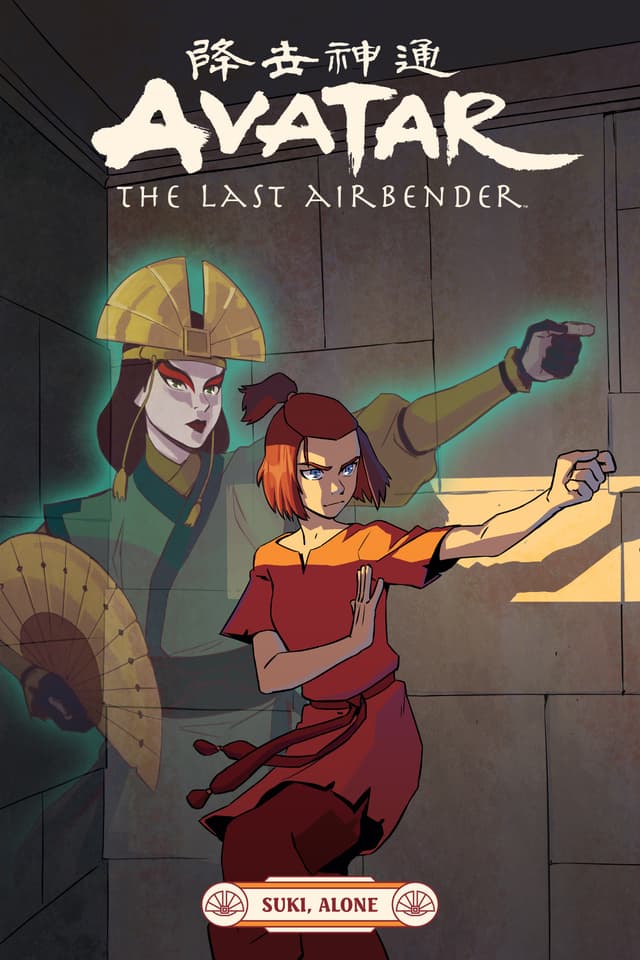
Book Review Summary: Suki, Alone (Avatar: The Last Airbender, #0.6)
Introduction
"Suki, Alone" is a graphic novel that expands on the Avatar: The Last Airbender universe, focusing on the character of Suki, a Kyoshi Warrior. Written by Faith Erin Hicks and illustrated by Peter Wartman, this book delves into Suki's life before and during her time in the Boiling Rock prison. With new queer representation and a thoughtful exploration of Suki's character, "Suki, Alone" has garnered positive reviews from readers. In this article, we will delve into the author's background, analyze the common opinions of readers, and summarize the reasons for both recommending and not recommending this book.
About Faith Erin Hicks
Faith Erin Hicks is a Canadian author and illustrator known for her work in comics and animation. Born in British Columbia and raised in Ontario, Hicks developed a passion for drawing and horseback riding. After working in animation, she transitioned to comics full-time. Hicks' work has received critical acclaim for its unique style and engaging storytelling. Her contributions to the Avatar: The Last Airbender universe have been highly anticipated by fans.
Analysis of Views
-
Character Development: Readers appreciated the opportunity to learn more about Suki's backstory and her journey as a Kyoshi Warrior. The flashbacks to her childhood and training added depth to her character, providing insight into her motivations and decisions.
-
Queer Representation: The inclusion of queer representation in the book was a significant factor for some readers. The portrayal of Suki's relationship with another character was seen as a positive step towards diversity and representation in the Avatar universe.
-
Consistency with Canon: Many readers praised the book for its consistency with the original Avatar series, maintaining the serious tone and avoiding out-of-character behavior. The storytelling felt more satisfying than some other Avatar comics that were perceived as lacking in depth or cohesion.
-
Artwork: The artwork in "Suki, Alone" was well-received, with readers appreciating the style that closely resembled the original series. The illustrations effectively conveyed the emotions and atmosphere of the story.
-
Lack of Excitement: Some readers felt that the book lacked excitement or a satisfying narrative. While they enjoyed learning more about Suki's character, they felt that the story didn't offer anything new or exciting compared to other Avatar content. They also expressed disappointment at the lack of resolution or significant events in the story.
Reasons for Recommendation
-
Expanded Character Development: Readers appreciated the opportunity to delve deeper into Suki's backstory and her experiences in the Boiling Rock prison. This added depth to her character and provided a more comprehensive understanding of her motivations and actions within the Avatar universe.
-
Queer Representation: The inclusion of queer representation in "Suki, Alone" was seen as a positive aspect by many readers. It added diversity to the Avatar universe and provided representation for a marginalized group within the story.
-
Consistency with Canon: The book's adherence to the original Avatar series was praised by readers, ensuring that fans of the show could enjoy a consistent narrative without disrupting their understanding of the characters or events. This consistency made "Suki, Alone" a more satisfying reading experience for those familiar with the Avatar universe.
Reasons for Not Recommendation
-
Lack of Excitement: Some readers felt that "Suki, Alone" lacked excitement or a compelling narrative. While they appreciated learning more about Suki's character, they felt that the story didn't offer anything new or exciting compared to other Avatar content. They were disappointed by the lack of resolution or significant events in the story.
-
Limited Scope: Some readers felt that the book's scope was limited, focusing primarily on Suki's experiences in the Boiling Rock prison without expanding beyond that setting. They felt that this limited scope made the story less engaging and prevented it from exploring new territories within the Avatar universe.
Conclusion
"Suki, Alone" offers fans of Avatar: The Last Airbender a chance to delve deeper into the character of Suki and learn more about her backstory as a Kyoshi Warrior. While some readers felt that the book lacked excitement or new content, others appreciated its consistency with the original series and its exploration of queer representation within the Avatar universe. Overall, "Suki, Alone" provides an engaging character study of one of Avatar's most beloved characters while offering fans a glimpse into her past and her struggles in captivity.